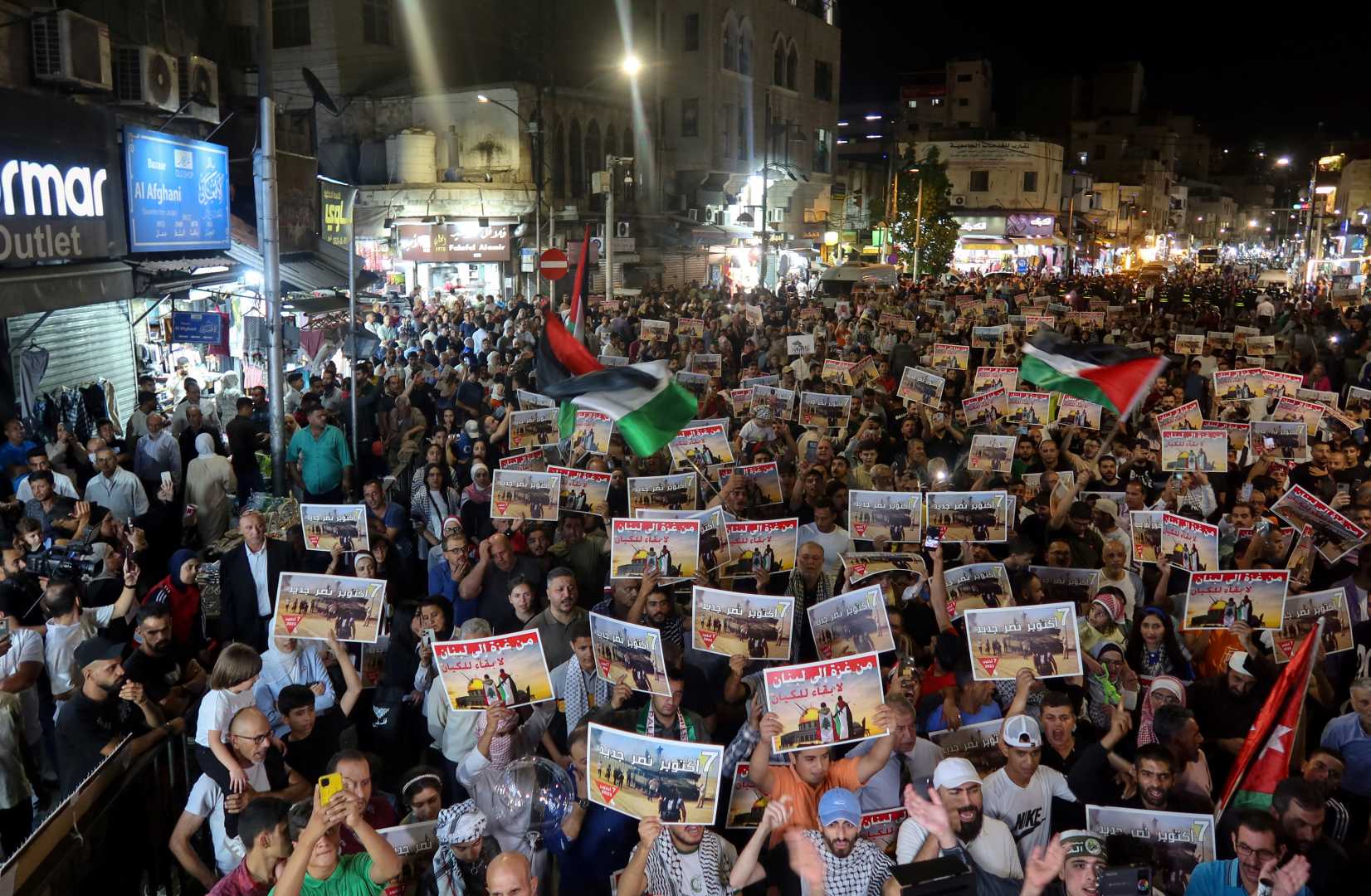News
Tensions Rise in Jordan Amid Ongoing Israeli-Lebanese Conflict

Amman, Jordan – A rare calm pervaded the square outside al-Husseini Mosque in downtown Amman over the weekend, a notable change for a location accustomed to vibrant pro-Palestinian demonstrations. This site, positioned between a commercial avenue and a bustling intersection, typically hosts regular protests. However, the recent quietness was attributed to “shock and despair” over Israel‘s attacks on Lebanon and the death of Hezbollah‘s leader Hassan Nasrallah, according to Ahmed, a bookshop proprietor in the area.
Ahmed, 50, who conversed with Al Jazeera, predicted a surge in protest activity following Friday prayers as emotions turn from despair to anger and frustration. Factors contributing to this shift include Hezbollah deputy chief Naim Qassem’s televised address—his first public appearance since Nasrallah’s passing—bolstering confidence that the Lebanese group remains active.
Recalling the 2006 conflict involving Hezbollah, Ahmed noted broad support among Jordanians for the group, despite diminished enthusiasm following Hezbollah’s support for Syria‘s regime in its civil war. Nevertheless, pockets of robust support persist; recent protests outside the al-Kalouti Mosque near Israel’s embassy in Amman featured placards of Nasrallah and pro-Hezbollah chants.
Hussein Amer, a 26-year-old hospitality worker with Jordanian and Palestinian heritage, conveyed to Al Jazeera that upcoming large protests would focus broadly on Israel’s actions in the Middle East, not solely Hezbollah’s activities. Amer expressed that Israel’s war on Gaza personally affects him, reinvigorating his commitment to demonstrate publicly.
Mohammed Telwiy, an 18-year-old Palestinian-Jordanian student, related to Al Jazeera his solidarity with Hezbollah as Israel targets Lebanon, despite not supporting the group. He voiced concerns over Israel’s aggression across the region, anticipating significant protests this weekend.
Omer Yaseen, 20, residing in al-Wehdat refugee camp, observed divergent views on Hezbollah in Jordan’s capital but noted unanimity in condemning Israeli military actions in the region, which are perceived as crimes against innocent civilians.
Diplomatically, Jordan’s Foreign Minister Ayman Safadi, during a UN Security Council session, criticized Israeli operations in Lebanon, advocated for Prime Minister Benjamin Netanyahu‘s restraint, and warned against further conflict. On social media platform X, Safadi held Israel accountable for the “catastrophic consequences” of its military endeavors.
The Jordanian government has remained largely silent on Israel’s continuous actions in Lebanon, maintaining a complicated diplomatic balance since the onset of Israel’s offensive on Gaza. While promoting ceasefire efforts and dispatching aid to Gaza, Jordan continues diplomatic interactions with Israel. Notably, in April, Jordan intercepted missiles from Iran headed toward Israel, a retaliation for an Israeli strike in Damascus.
This diplomatic posture has stirred discontent among Jordanian citizens, particularly descendants of Palestinians displaced in historical conflicts. Additionally, a recent Jordanian Armed Forces report confirmed a rocket from southern Lebanon landed in an uninhabited area east of Amman, resulting in no casualties. The military confirmed readiness to tackle further aerial threats.












